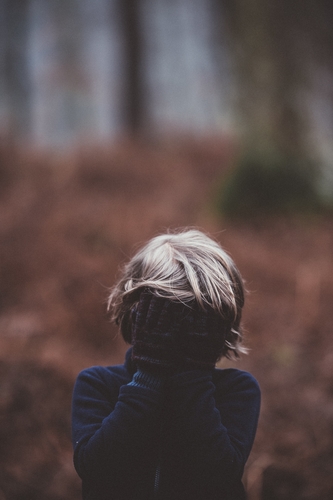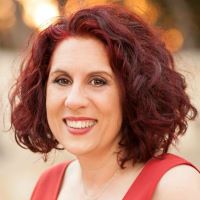I’ve been asked, by more than one person, why I’ve been so vocal on Social Media lately about identity, culture, and black lives mattering.
The short answer is, Because I’ve been hurting.
At first I thought the hurt came from Empathy, in response to the stories of my Indigenous and African brothers and sisters. But this was different. This came from a place far deeper. A distant echo from long ago. The hurting was not new, it was a shadow of something familiar lurking beneath my empathy, and until I could uncover it I would remain stuck.
And this week I found it.
What I first thought to be Empathy turned out to be a remnant of my own hurt. And now that I understand how I feel, it is enough for me to know that I don’t want to know about anything worse.
Unfortunately, I do know. I know that many people groups have endured far worse than I. And for too long they have struggled in vain to have their voices heard, to receive acknowledgement and understanding, to see change, and to experience justice.
For an apology.
For attitudes and words that seek to understand, instead of attitudes and words of defensiveness.
Why is it so important for us to seek to understand?
Sticks and Stones
Sticks and Stones may break my bones but names will never hurt me!
Mum taught me that phrase when I was ten. It was supposed to keep me safe from hurtful words. I repeated that phrase out loud, and when the words kept coming I continued repeating it. It became my morning mantra as I walked the 2 kilometres to school each day. And each day I waited expectantly for the phrase to work it’s magic and cover me with that invisible armor.
But it didn’t work. The armor never came.
Every word found it’s way to my heart and made a home there.
On the outside I fought back the insults. Sticks and stones may break my bones but names will never hurt me! I was brave! I was strong! Say what you like, you can never hurt me!
On the inside, my heart’s response told a different story.
“Greasy Ding!” I’m a slimy disgusting dog!
“Greasy Wog C**T!” Everyone is disgusted by me, I am unlovable.
“Go back to where you came from! No one wants you here!” But I was born here! If I don’t belong here, then where do I belong?
Eventually the words stopped coming. But the healing took much longer to come. Even as a young adult, I distinctly remember feeling that I didn’t belong anywhere.
If I didn’t belong, then what was the point of existing?
Not Belonging
The concept of Belonging is an important element of the The Australian Early Years Learning Framework. And for good reason. In order for children to develop a positive and strong sense of identity, they must feel safe first. And part of feeling safe is feeling accepted and valued in their family and community.
Overall, a strong sense of cultural identity in the child’s family and community is protective, it supports the development of resilience, emotional well-being, and a positive sense of self. However, when the different culture of a child’s family is rejected by the community at large, this leads to vulnerability, which can have devastating effects on the emotional and mental well-being of the child, lasting well into adulthood.
I only endured two years of it, and it haunted me for the next 20. Added to the above feelings I had about myself and the way others thought of me, I also experienced shame around my cultural heritage.
Yep, you read that right. I was embarrassed to be Italian. It seems ridiculous now, but when you’re constantly treated as stupid or ‘less than’ because of your culture, told that you smell and you’re disgusting, to go back to where you came from, and accused of stealing jobs from Australians, you learn to hate who you are.
And that was just words. For the large part I wasn’t excluded from educational or employment opportunities because of my race. Nor was I ever denied service, physically abused, or in any other way treated differently to the community at large.
I truly believe that the sole reason I got off lightly is because of the colour of my skin. Which is why I don’t want to know how it feels for my brothers and sisters who happen to have a little extra pigment in theirs. Not because I don’t care, but because it would be too much.
So here’s the thing.
While I can’t and will never understand How it feels for people of colour, I do understand how I feel. And understanding how I feel has led to a better understanding of Why others feel. It’s that understanding of the Why which has added another layer to my hurt.
Anger!
I’m angry, and a little scared to be honest. Angry over the fact that I was made to feel ‘less than’ and the years it took for me to rebuild my sense of self. Scared of the capacity of humans to inflict so much pain on others, simply because they are different. Angry at the fact that racism continues, that people are still treated deplorably and denied justice and freedom and the fundamental right to just BE.
So if I’m hurt, scared and angry after only a few years of nothing more than words, how much more so would these feelings be prevalent in people groups who have endured centuries of physical, emotional, spiritual and psychological degradation and injustice?
Can we all pause and reflect on that for a moment please? Because I don’t want to believe that we should need to experience something in order to enable Empathy.
Why Are We Still Talking About It?
I’m tired. Tired of having this conversation. I honestly didn’t want to write about it, but the words were forming a knot in my belly, so tight it was difficult to breathe. First baby gave me the final nudge I needed when she exclaimed, It’s the 21st century! Why are we still having this discussion?? She’s been hurting, her heartache comes from a place of true empathy. She fortunately has not personally experienced racism, but her heart is strong enough to feel and stand with those who have.
I have to be honest, I’d given up. We’ve been talking about this for years yet I’m still having the same conversations so what’s the point? I feel shame in this statement. For those who are experiencing this daily, giving up is not an option.
But when first baby made that remark, I was reminded of the importance of standing up for what’s right. Not just because it sets an example for her, more importantly I don’t want her to ever give up on fighting for justice. I love her heart, it’s a gift to the world, and I don’t want it to succumb to cynicism.
Please Consider
While I’m being honest (and a little angry) I’m going to go a bit further. I’m going to ask you to consider the following with an open and honest heart, no matter how uncomfortable it feels.
Firstly – Do you believe that anyone, ever, has the right to inflict physical, spiritual, psychological or emotional harm upon another human being through exclusion, words, aggression or by any other means?
If you answered No to the above, would you consider helping another heal by acknowledging the hurt that has been inflicted upon them and their families in the past?
Because you may not have been part of the problem, but you sure can be part of the solution.
Will you join me? Together we can make a difference.

National Sorry Day: Why do we need to say sorry?
Racism: Is there such a thing and what does it mean to say I’m privileged?


